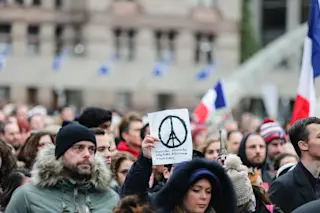A growing body of research examines the psychological aftermath of terrorist attacks, such as the coordinated attacks in Paris on Nov. 13. (Credit: Stacey Newman / Shutterstock.com) On November 13 2015, a series of coordinated attacks in Paris left 130 people dead. A week later, armed gunmen stormed a hotel in Mali, seizing hostages while also firing indiscriminately at guests, killing 27 people. And this week a mass shooting in San Bernardino, California, left 14 dead. While the motive is not known, the FBI has assigned counterterrorism agents to the case, sparking public speculation that the shooting may have been an act of terrorism. You could spend hours every day watching, reading and listening to news related to these events. This level of exposure can significantly influence your worldviews and how you live your life. The aftermath of events like these can make people feel more vulnerable. And as cities ...
How Terrorist Attacks Influence Mental Health
Explore the psychological aftermath of terrorist attacks, including increased PTSD and fear's impact on mental health and behavior.
More on Discover
Stay Curious
SubscribeTo The Magazine
Save up to 40% off the cover price when you subscribe to Discover magazine.
Subscribe













